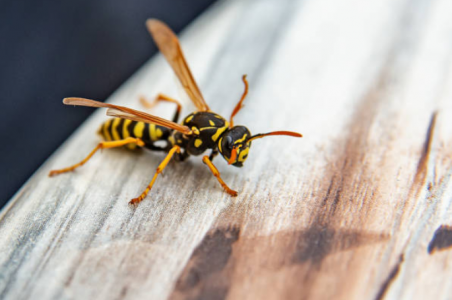
It is not your imagination. Bees are out and they seem more aggressive these days. Late summer into early fall is the height of the “angry bee” season. As bees and wasps near the end of their life cycle, they become increasingly aggressive and ready to sting. Everyone reacts differently to bee stings and it is important to differentiate between a “normal”, non allergic reaction and an allergic reaction when it happens. As some may experience the normal, but minor soreness, itching and hives, others who are allergic to bees can experience life threatening symptoms and situations.
Here at AFC Urgent Care West Hartford we have seen a dramatic upswing of kids (and parents!) walking through our doors with painful sores and welts from stings. Keep your children safe with this guide on what to do if my child is allergic to bee stings and what to do if they get stung by a bee.
How to know if my child is allergic to bee stings?
Allergies are often hereditary, so allergic parents should be more cautious with their children, although children will often outgrow their allergy. If your child is stung by a bee and a severe reaction occurs, an allergist should be seen as soon as possible. Future stings could result in reactions that are up to 60 percent worse than the first allergic reaction. Also, often a child can get stung 2 or 3 times before having an allergic reaction, so it’s important to be vigilant if there is family history of bee allergies.
If you suspect your child is allergic to bees you may want to have them tested, but not unless they have had a serious reaction because it is often a lengthy process and so few people are actually allergic.( again, where is this cited from? Also, there are types of allergy tests used, the RAST test (a blood test) is the simplest but has about a 20 percent false-negative, false-positive result ratio.
The other, more sensitive test is a scratch test on the skin that is performed with purified, freeze-dried venom. It can alert the patient and doctor to the severity of the allergy, while a blood test will only point to the fact that an allergy exists. Luckily, only about 20 percent of patients with positive skin test results will later experience severe allergic reactions.
- One should wait until a systemic reaction has occurred before worrying about allergies.
- The first allergic reaction is rarely that bad, but once again, see an allergist if a reaction spreads beyond the sting site.
What are the symptoms if you are allergic to bee stings
If you or your child reacts with the following symptoms they are most likely suffering an allergic reaction to bees. A severe allergic reaction can cause the following, oft called anaphylactic reactions:
- throat starts to close up
- severe hives and or itching
- high fever
- headache
- difficulty breathing
- racing heart
- face or mouth swelling
- feeling faint
How to treat a non-allergic reaction when stung by a bee or wasp
For normal, non-allergic reactions you want to remove the stinger. Avoid using tweezers to squeeze them out. This can increase the risk of spreading more venom. If you can try to use your fingernail to scrape out the stinger or use a gauze to wipe the stinger out.
After that initial step, apply a cold compress or ice to reduce swelling. You can apply a dab of Neosporin to prevent possible infection and also apply calamine lotion to prevent itching. For pain you can take an aspirin or acetaminophen.
It would be nice to just avoid a bee sting altogether. Although not always preventable there are a few things you can do to help prevent being stung by a bee or wasp.
How to prevent being stung by a bee
- Avoid brightly colored and flower print clothing to help keep bees away.
- Avoid fragrances or cosmetics with floral scents.
- Always be careful with food and sweet drinks such as soda. Bees will often fly into the can and sting the drinker when he or she takes a sip.
- If you are going into a field where there will likely be bees, wear long pants and shoes that cover your whole foot.
- Keep garbage in sealed receptacles. When out at a public park or playground, steer clear of open or full garbage bins
- If there are bees around or on you, don’t run and don’t swat at them. Standing still will keep the bees calm and, most likely, they will fly away without causing harm.
- Call a pest professional if you notice a hive or nest on your property.
What to do if my child just got stung by a bee or wasp and is allergic

Here’s what to do if you already know that your child will develop a severe allergic reaction when stung by a bee or wasp:
- Your child, or you, should always carry a bee sting kit that includes a bronchodilator epinephrine shot (Epipen) or inhaler, which will dilate the airways and allow your child to breathe.
- Call 911 or bring them into the closest Emergency Room as soon as possible. They will need to be treated immediately.
At AFC Urgent Care West Hartford you can walk right in, no appointment necessary, to our walk-in clinic located at 1030 Boulevard, West Hartford, CT 06119-1801. We accept most insurances and all our locations are open 7 days a week and ready to treat bee stings.


